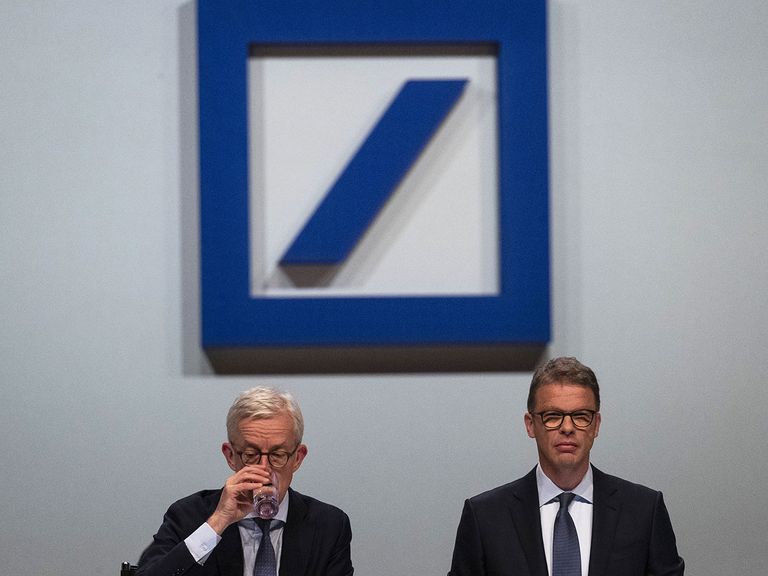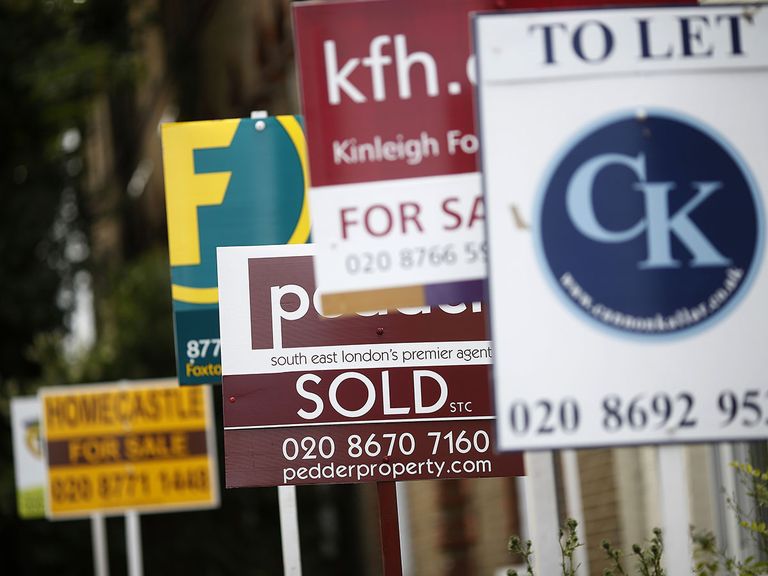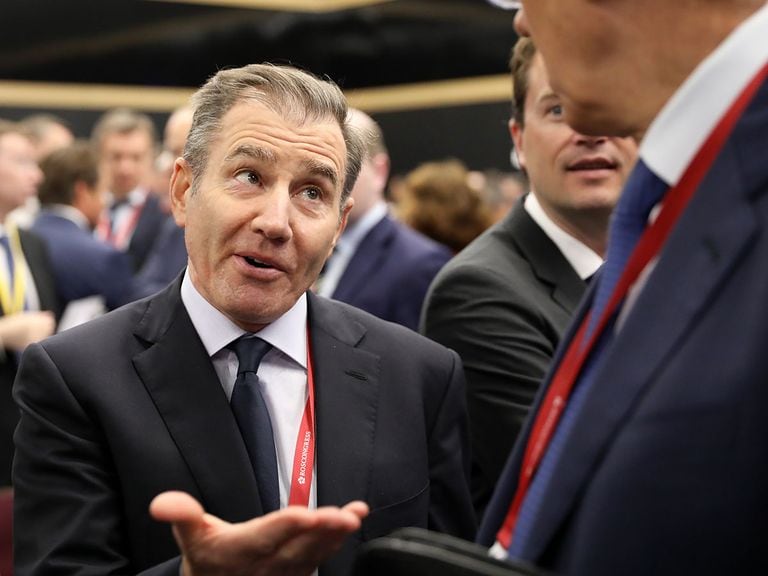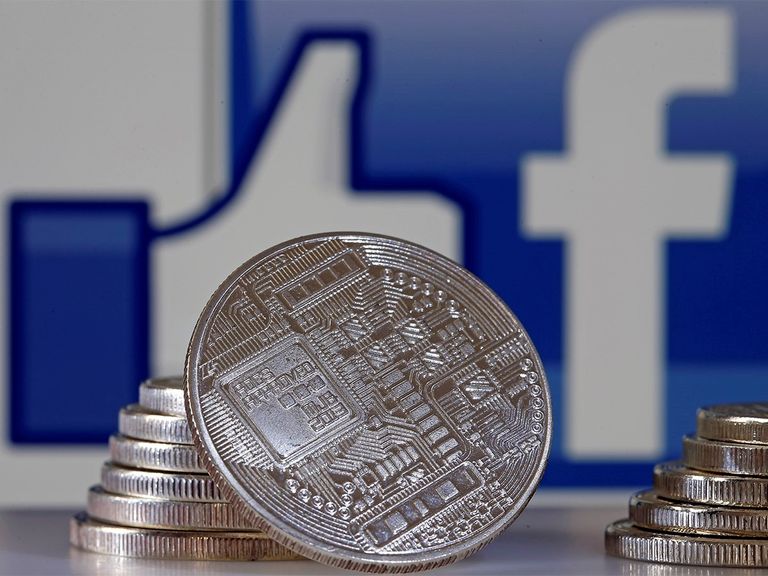Deutsche Bank’s [DBK] vicious circle of falling revenues, heavy fines, lowered ratings and rising funding costs has driven the bank’s share price down to its lowest in its 149-year history.
Following the collapse of merger talks with Commerzbank [CRZBY] on 25 April, shares fell more than 20% to reach a record low of €5.80 on 3 June – as mounting pressure to take drastic action to reverse the lender’s faltering fortunes intensified.
So when the Financial Times reported on CEO Christian Sewing’s restructuring plans on 17 June, its share price received a much needed boost – rising 1.3% to €6.11.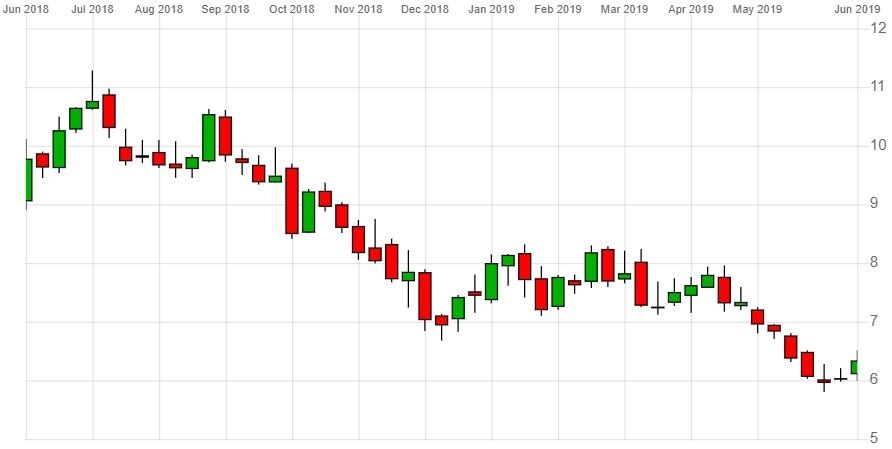 Deutsche Bank 1-year share price performance, CMC Markets, 25 June 2019
Deutsche Bank 1-year share price performance, CMC Markets, 25 June 2019
The deep overhaul of the bank’s trading operations will reportedly include the creation of a so-called ‘bad bank’ to hold or sell up to €50bn of poorly performing assets; a severe cutback in its equity and rates businesses located outside of Europe; and a strategical pivot to focus on transaction banking and private wealth management.
As Deutsche Bank’s original franchise, transaction banking hasn’t been a major focus for the lender in recent years – despite it being one of its best-performing divisions with revenues growing 6% to €975m in its most recent quarter.
While explicit details of the changes have not yet been outlined, they are likely to be announced at the bank’s half-year results on 24 July.
Deutsche CEO accelerates bank’s transformation
As Germany’s largest bank with €1.2bn in assets under management, the firm’s inability to turn its falling revenues and disappointing share price around has sparked tensions among shareholders. “We are faced with a pile of s***,” said one activist investor at the annual general meeting on 23 May.
During the meeting, where Sewing first hinted at the radical overhaul, he said that “no one’s more disappointed with our stock market performance than I am”. For Sewing, the deteriorating share price is a motivator. “I won’t let up – I will work with all my strength to boost our share price,” he added.
“No one’s more disappointed with our stock market performance than I am” - Deutsche Bank CEO, Christian Sewing
It’s worth noting that under Sewing, the bank has restored its balance sheet to profitability for the first time since 2014, reporting a net profit of €1.3bn in its 2018 results on 1 February. Indeed, the restructuring wouldn’t be possible without the €260bn in liquidity reserves the bank has built up as a buffer.
As a result of the lender’s improving bottom line, it is targeting a return on tangible equity of at least 4% this year, which is still below most of its peers. Deutsche Bank’s return on equity – which currently sits at negative 1.31% (TTM) – is way below the industry’s 16.04% and the sector’s 15.38%, according to Reuters.
Investment bank undergoes major surgery
The new ‘bad bank’ is Deutsche Bank’s second attempt to rid itself of underperforming legacy assets that have been on the balance sheet since the financial crisis.
Between 2012 and 2016, the bank disposed of over €100bn in risk-weighted assets, including a casino and hotel called The Cosmopolitan, of Las Vegas, that was sold to PE firm Blackstone for $1.73bn, and its subsidiary BHF-Bank that was sold to Kleinwort Benson for €384m.
$1.73bn
Value of The Cosmopolitan hotel sale to PE firm Blackstone
However, by the end of the purge, the lender still had €60bn of poorly performing legacy assets. By 2018, the portfolio had been halved but it’s only now that Deutsche Bank can finally rid itself of these remaining assets through the creation of the ‘bad bank’, made possible through the creation of its healthy cash buffer.
Mixed valuation deepens woes with downgrades
At a time when Deutsche Bank is beset by a series of crises, from concerns about the lender’s dealings with Donald Trump to the US federal authority’s latest investigation into potential money-laundering lapses, diverging metrics surrounding its valuation make it a risky bet for investors.
The lender’s P/E ratio is at a massive 622.80 (TTM), according to Yahoo Finance, which compared to the industry’s 18.78 suggests that investors are anticipating higher growth in the future. This is backed up by the company’s revenue forecast. The bank's stock currently supports €0.01 EPS (TTM), however, Deutsche's 2019 revenue forecast of €24.5m would leave it with an 88% EPS (TTM) growth rate for the year, according to Reuters.
On the other hand, Deutsche Bank’s price-to-book of 0.19 is less than most European banks and suggests that it’s massively undervalued relative to the company's book value, as well as the industry average, which comes in at 3.16.
| Market cap | €12.79bn |
| PE ratio (TTM) | 622.50 |
| EPS (TTM) | 0.01 |
| Quarterly revenue growth (YoY) | -9.80% |
Deutsche Bank share price vitals, Yahoo Finance, 25 June 2019
As a result of the opposing valuations and continued difficulty, an increasing amount of analysts are downgrading their stock recommendations to sell, which will likely weigh down the embattled bank’s stock further.
In May, UBS downgraded its rating from neutral to sell, giving it a price target of €5.70, suggesting a fall of 9% from current levels. The stock currently has a majority hold rating among analysts, according to Reuters, with eight rating it as underperform and six as sell.
Whether the bank’s latest attempt at revamping its diminishing fortunes will be a turning point for the lender is yet to be determined, but it’s clear that CEO Sewing is willing to make the tough choices needed to restore growth.

